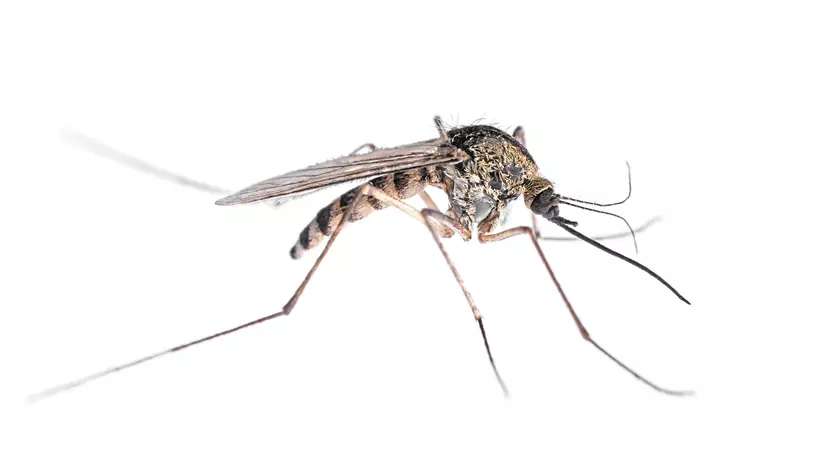Appearance
Small insect with piercing mouth part
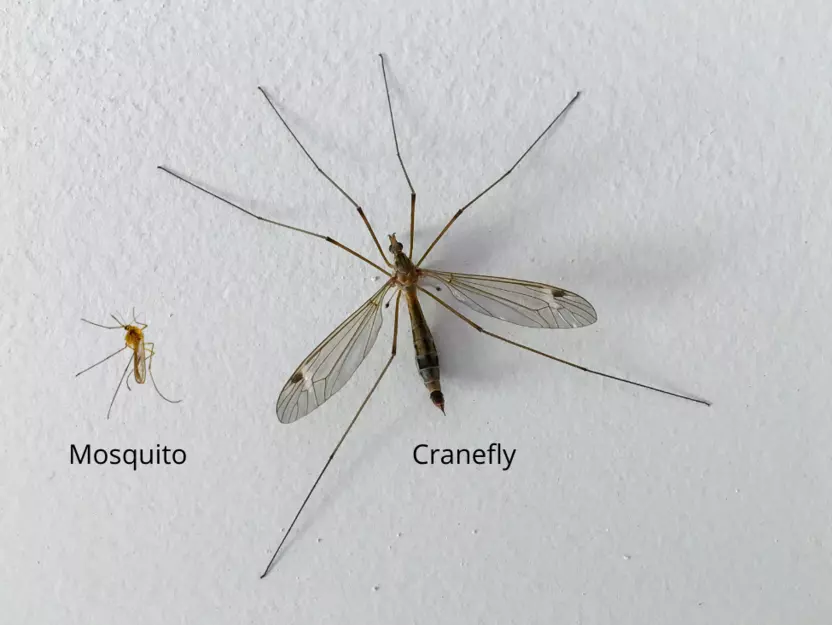
Mosquitoes are often confused with other flying insects such as crane flies. Both need water to reproduce, but only mosquitoes are capable of biting and transmitting diseases. Mosquitoes are much smaller than crane flies and have a tube-shaped mouth part (called proboscis) used to pierce flesh and suck blood. Crane flies may look intimidating because of their similarity to mosquitoes, but lack a proboscis making them incapable of taking blood.
Biology
Need blood meals and standing water
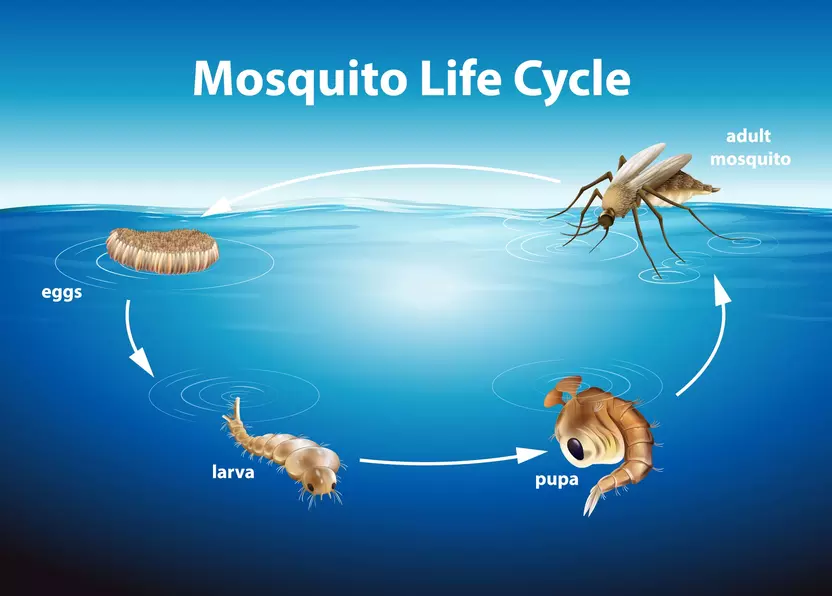
Male and female mosquitoes feed on nectar but only female mosquitoes require blood meals in order to lay eggs. Female mosquitoes lay their eggs in standing water and damp soil, which then hatch into mosquito larva. The larva then develops into a pupa, a non-feeding and resting stage. Adult mosquitoes emerge from the pupa and the cycle begins again.
Behavior
Mostly active during warm months

Common mosquitoes are mostly active during dusk and dawn, with the highest activity during warm months, but some invasive mosquitoes bite aggressively during the day. Review our most frequently asked questions regarding the day-biting invasive Aedes mosquito and call the District office at (408) 918-4770 if you encounter day-biting mosquitoes. If you are active outdoors during that time, prevent mosquito bites by wearing long sleeves, pants, and insect repellent approved by the Environmental Protection Agency (EPA). For more information about repellents, visit the EPA or the California Department of Public Health.
Public health concern
Disease transmission
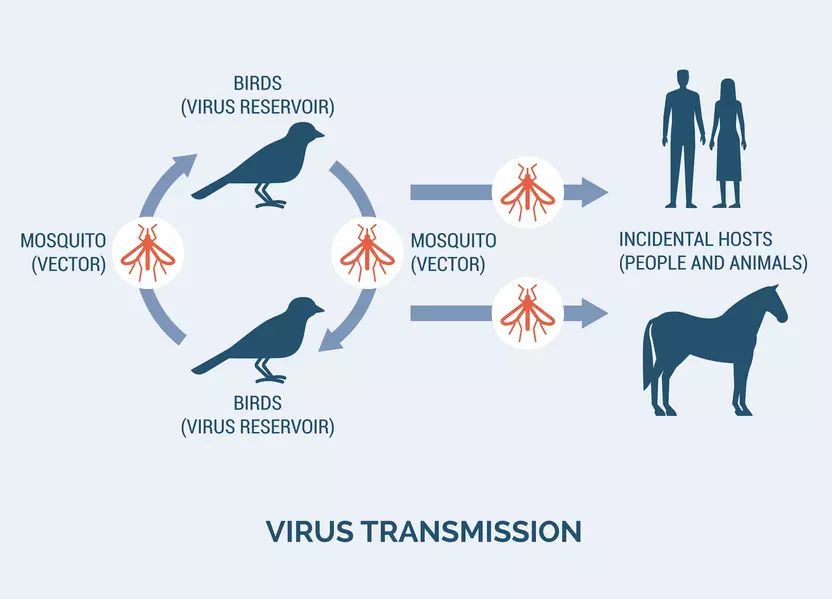
Mosquitoes pose a serious health risk to humans as they can transmit deadly diseases such as West Nile virus (WNV), Western equine encephalitis (WEE), and Saint Louis encephalitis (SLE). Different mosquitoes species can carry different diseases, but not all mosquitoes are infected. The most prominent mosquito-borne disease in the county is WNV. Most people infected with WNV do not develop any symptoms. However, some people may develop flu like symptoms including headaches, body aches, joint pain, vomiting, diarrhea, or a rash. Elderly individuals and people with compromised immune systems are at a higher risk of getting sick and they are more likely to develop complications.
Prevention
Inspect, drain, remove, and turn over

Mosquitoes need standing water to reproduce. The best way to prevent mosquitoes in your area is to drain, remove, or turn over anything that can hold water. This includes flowerpots, planter bases, wheelbarrows, bird baths, toys, cans, rain gutters, pet dishes, buckets, old tires, and tarps. Drill holes in tire swings and other containers so they can drain, and clear roof gutters of debris. Change the water in bird baths at least one time per week, place tight fitting screens on doors and windows, and keep lids tight on rainwater collection systems.
Do not allow water levels in your swimming pool to fall below the pump circulation area. Thousands of mosquitoes can emerge from one neglected/abandoned swimming pool. You can request free mosquitofish (fish that eat mosquito larvae) for placement in pools, ornamental ponds, fountains, and rain barrels (see our mosquitofish page for more information).
Report mosquito activity and abandoned or neglected pools to the District by submitting a service request, or by calling our District office at (408) 918-4770. Help conserve water and prevent mosquito breeding by reporting water waste to Valley Water. Valley Water offers many rebates and services including helping convert pools or lawns to low-water use landscapes, or upgrade irrigation equipment to reduce runoff through their Landscape Rebate Program. Learn more at watersavings.org.
Control
Mosquito abatement program
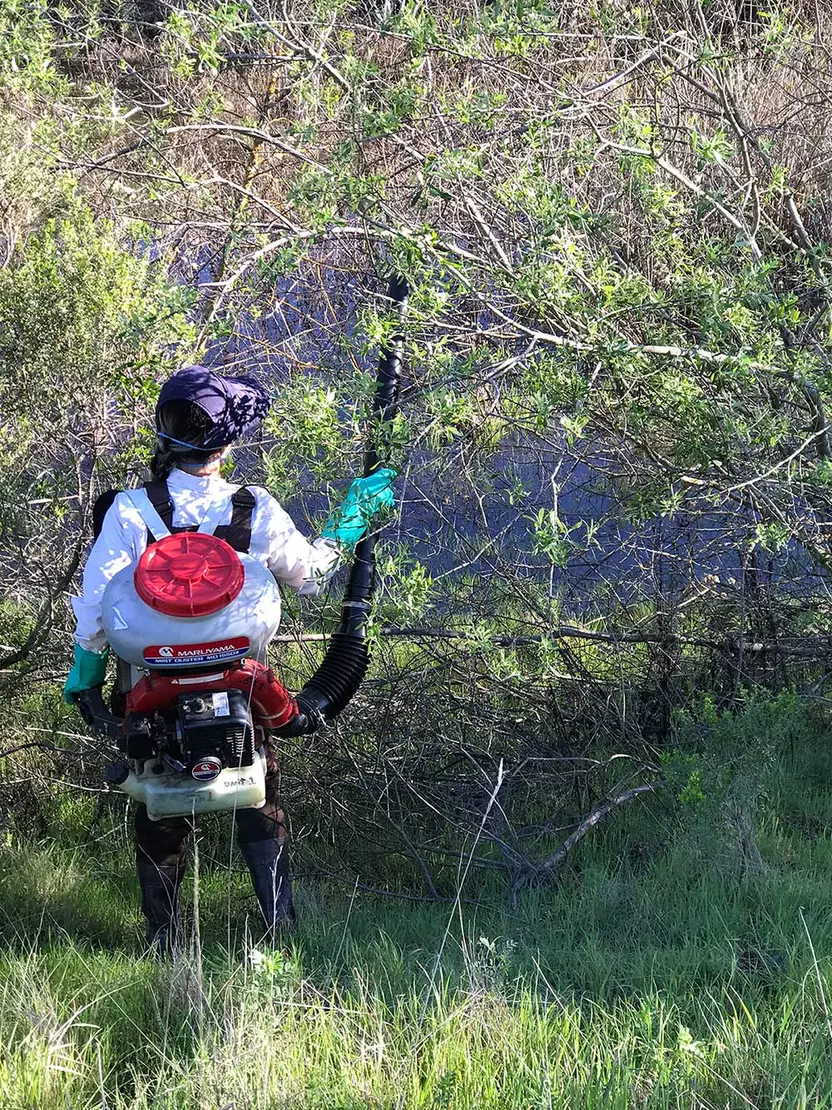
The District has a robust mosquito prevention program in place, focusing on the use of Integrated Pest Management (IPM) to eliminate dangerous mosquitoes before they reach adulthood, and begin infecting people and animals. Staff inspect potential breeding sources such as catch basins, curbs, marshes, creeks, ponds, or anything that holds standing water. The District uses biological control such as mosquitofish and products approved by the Environmental Protection Agency that specifically target mosquito larvae and pupae.
Typical abatement procedures are used to access properties to eliminate the source of a mosquito problem (for example a neglected swimming pool in the backyard). The District makes every effort to work with landowners to eliminate mosquito sources and other nuisances. However, if a landowner is unwilling to cooperate or fails to respond, the District has the authority to access private properties to inspect and abate the source of the problem. The District also has the authority to charge a landowner a fee, and place liens upon property (California Health and Safety Code, Division 3, Chapter 1 §2000-2067).
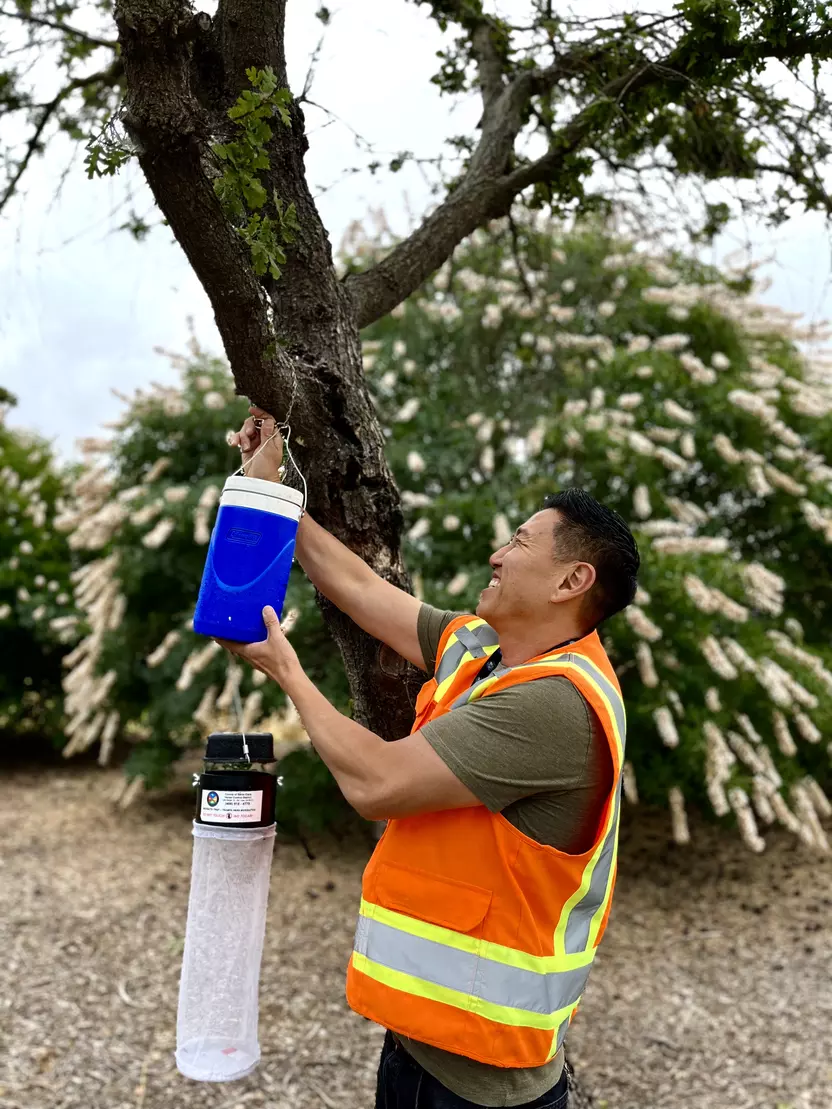
Surveillance
Monitoring for diseases
Detecting disease activity early can prevent problems from occurring, making surveillance one of the most essential District programs. District staff routinely monitor for mosquito-borne diseases such as West Nile virus, Western equine encephalitis, and Saint Louis encephalitis. The District’s Surveillance Program is composed of mosquito trapping, sentinel chicken monitoring, and dead bird testing. A variety of carbon dioxide and light traps are placed throughout the county, to capture mosquitoes and help the District understand mosquito abundance and the presence of mosquito-borne diseases.
The District encourages the public to report dead birds by submitting a service request or by calling the District office at (408) 918-4770.
Brochures
- Are you raising mosquitoes in your backyard? (English) (Spanish) (Vietnamese) (Chinese)
- Draining your pool and spa
- Mosquitoes Brochure (Spanish)
- Invasive Aedes Mosquitoes FAQs (Spanish)
- Water conservation and mosquito prevention
- Rain barrels and mosquito breeding
- Irrigation Drains and Mosquitoes
- Kid's mosquito activity book
